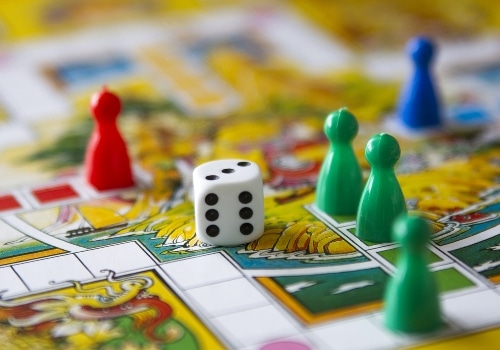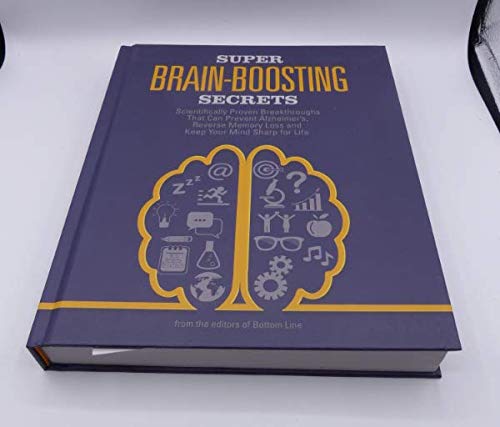Calculus has the reputation of being one of the most challenging subjects in school, even when compared with other advanced math classes. That’s because calculus is usually the first exposure students get to a version of math that requires more than just memorization to succeed.
Many calculus classes have specific pre-requisites, such as an understanding of advanced algebra, geometry, and trigonometry. After all, it’s essentially another language. However, you’ll need more abstract qualities as well.
- Calculus For Dummies
- Ryan, Mark (Author)
- English (Publication Language)
A well-developed imagination will make it much easier to understand calculus. Since calculus works with physical, real-world concepts, the ability to visualize these things in your mind is crucial to your ability to understand and solve calculus problems.
You also need to learn how to attack problems from different angles. There are specific rules in calculus that you’ll have to memorize, but not all calculus problems will follow a pre-set formula. You need to learn how to solve complicated problems without following a specific set of actions you’ve memorized.
Overall, you’ll need advanced problem-solving skills if you want to succeed in calculus. To help you learn or build upon these skills, we’ll teach you to enhance your calculus capabilities with these brain-boosting tips.
General Brain-Boosting Tips

Even before you start your first day of calculus, you can work on improving your ability to learn and process advanced concepts. And it’s easier than you may think.
Dance Like Nobody’s Watching.

It may be an overwrought cliché, but this advice not only works for improving your mood, but it can also develop your ability to solve problems.
Studies have found that dancing can improve your brain’s neural processing abilities. Structured dancing, such as tap and ballet, helps with convergent thinking—your ability to find a single, absolute answer to a problem.
On the other hand, more improvised styles of dance, like hip-hop or EDM dancing, improves divergent thinking. That means you’ll have an easier time finding multiple possible answers for a complex problem.
 The Art of Movement – NYC Dance Project
The Art of Movement – NYC Dance Project
Since calculus requires both types of thinking, you should consider learning multiple styles of dance. Many schools offer dance classes as an alternative to physical education, or as an elective. If you don’t relish the idea of dancing in front of other people, you can also use Youtube to find dance tutorials and practice in the privacy of your home.
Play Games.

Over the last decade or two, there has been a rise in the popularity of logic and puzzle games like sudoku. Electronic games designed to work out your brain can be found on nearly any video game platform as well.
These types of games are not just a fun way to engage your mind when you’re bored; they’re also a great way to improve your problem-solving skills. Many logic or puzzle games require you to work a problem from multiple sides and have numerous ways of finding the solution.
For many problems, both in games and in calculus, you’ll need to approach the problem backward, not forward. By practicing this strategy with fun games in your free time, you’ll find that you have an easier time working through your calculus problems as well.
Stay Healthy.

Obviously, exercise and a proper diet will benefit your body; however, science also proves that a healthy body leads to a healthy mind. People who regularly work out and eat wholesome, healthy food, have more energy, which helps their brain work faster and harder.
Researchers at Harvard found that regular cardio exercise can actually increase the size of your hippocampus, which is the part of the brain responsible for verbal memory and learning. It doesn’t take much, either—simply walking at a brisk pace for about two hours per week is enough to boost your mental function significantly.
A similar Harvard study also discovered a link between unhealthy food and memory problems. Scientists studied the effects of a diet high in LDL (“bad” cholesterol) and saturated fats on memory and found that participants performed much worse on tests of thinking and memory than people with a healthier diet.
Since diet and exercise have positive effects on both your body and your mind, they’re likely to enhance your calculus capabilities as well. They can help relieve stress for keeping focused on your work.
Sleep Well.
We’ve all experienced the adverse effects of sleeplessness—foggy brains, irritability, and lack of energy, to name a few. Not getting a good night’s sleep can have a catastrophic impact on your ability to learn, as well as your problem-solving skills.
REM sleep, in particular, is vital to your ability to form connections between unrelated ideas. That means your brain works while you’re sleeping to process everything you’ve learned and allowed you to see the bigger context of different subjects and ideas.
REM sleep also enhances creative processing, your brain’s ability to form new ideas and ways of thinking about concepts you’ve learned in the past.
Advanced Problem-Solving Tips
While the above tips will prepare your brain to learn calculus, you may still need some extra help when it comes time to work through calculus exercises. If you find yourself struggling with a problem, try some of these tips.
Mind Maps

A mind map is essentially a sketch of the problem and all the potential solutions. You can use this technique with any kind of question. Think of it as another way to brainstorm. By drawing out the issue, your mind may be stimulated to generate more ideas.
Basically, you start with your problem in the center of the page. As you brainstorm possible solutions, add branches off the center containing these answers. You can divide these main branches into sub-branches, as you plug in your potential answer to the problem and work through it. If one solution doesn’t work, you move on to the next one and continue the process until one of them works.
Music and Exercise

We’ve already discussed how exercise can help stimulate your brain in general. However, the addition of music can further push your mind to sort through everything you’ve learned and organized it in ways that may lead to finding a solution to your problem.
Idea Journals

- UNLIKE THE DISAPPOINTING FAKE LEATHER JOURNALS MADE BY OTHER BRANDS, Moonster’s leather notebook is made of HAND-CUT,…
- WHILE MANY FAUX LEATHER JOURNALS ARE CONSTRUCTED POORLY, WITH GLUED-ON BINDINGS AND PAGES THAT FALL OUT, our writing…
- NO BLEED THROUGH: Use any pen on this thick quality paper – EASY FOR HANDWRITING, DRAWING OR SKETCHING and compact…
Many studies have shown that the act of writing types of cement not only new ideas into your brain, but also generates new connections and creative ideas. The purpose of an idea journal is to provide a place for you to write out your problem and any subsequent ideas you generate over time.
As we’ll discuss in a little bit, sometimes your brain will come up with solutions to a problem when you least expect it, while you’re showering or watching television or hanging out with friends. Keeping an idea journal with you at all times allows you to write out these solutions as soon as they pop into your head.
Talk it Out
For many people, the act of talking through a problem helps their mind sort through ideas and generate new solutions. Whether you’re talking to yourself, a friend, or a classmate, merely verbalizing the problem may lead you to blurt out the answer without realizing you knew it all along.
One common strategy is to talk through the problem as if you were teaching the subject to someone else. By explaining the concepts involved in the question (to yourself or others), you could unlock the answers already hidden in your mind.
Create a Sketch.
As we mentioned earlier, most calculus problems can be represented physically—for instance, the shape of a curving slope, or the speed of a moving object. Sketching a visual representation of the problem could help you understand exactly what it is you’re trying to solve.
- Yanconsky, Liron (Author)
- English (Publication Language)
- 360 Pages – 12/18/2014 (Publication Date) – CreateSpace Independent Publishing Platform (Publisher)

Focus on Something Else.
You’ve probably heard the story of Archimedes, who found the answer to how to measure the volume of a king’s crown while taking a bath. While the anecdote may or may not be true, the idea of the brain finding solutions to problems while you’re focusing on something else is solid.
By working on something else, particularly something that doesn’t require too much mental strain, you increase the psychological distance between yourself and your problem. That allows your brain to think more abstractly and creatively on the issue at hand while your attention is focused somewhere else.
Get Back to Basics.
If you’re still having trouble coming up with a solution, try going back to the beginning. Focus on the parts of the problem that you already understand, and work through as much of it as you can. In the process of rehashing familiar concepts, you may trick your brain into forming the complete solution.

Final Notes
You don’t need to be a math genius to succeed at calculus. Even more than mathematical ability, calculus requires creativity, adaptability, and excellent problem-solving skills. If you work hard, take care of yourself, and use our guide to enhance your calculus capabilities with these brain-boosting tips, there should be nothing stopping you from earning that A.
The video may take a few seconds to load.Having trouble Viewing Video content? Some browsers do not support this version – Try a different browser.


 Brain Boosting Secrets
Brain Boosting Secrets Brain Games – Sudoku
Brain Games – Sudoku






